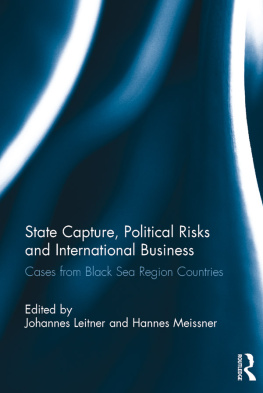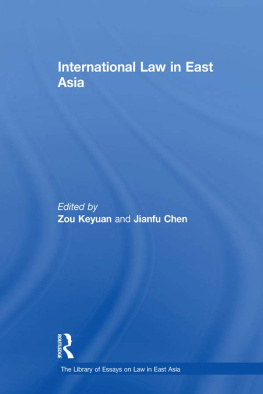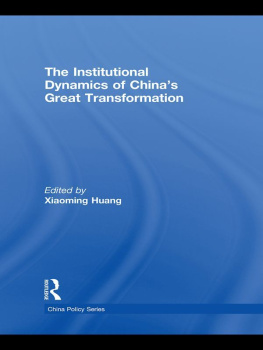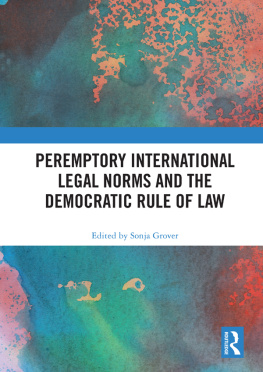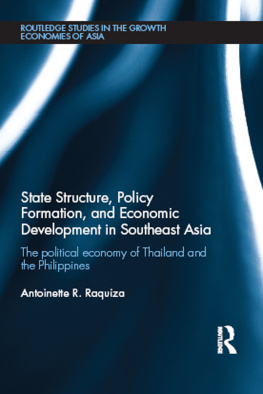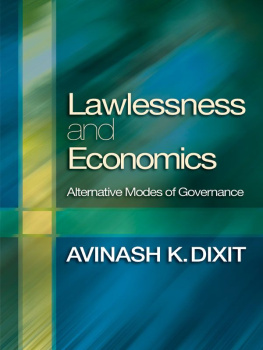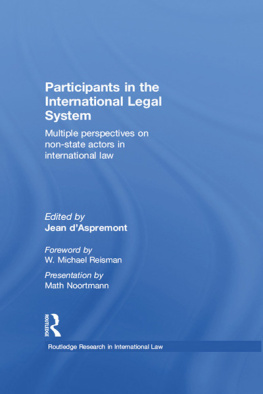State Capture, Political Risks and International Business
In the OECD-area states provide security business to be conducted through a legal-institutional framework where state institutions, working in a legal-rational, predictable and effective manner, are often taken for granted. Worldwide, however, the situation is very different. Private actors seize public institutions and processes accumulating ever more power and private wealth by systematically abusing, side-stepping, ignoring and tailoring formal institutions to fit their interests. Such forms of state capture are associated with specific political risks international businesses are confronted with when operating in these countries, such as institutional ambiguity, systematic favouritism and systemic corruption.
This edited volume covers state capture, political risks and international business from the perspectives of Political Science and International Business Studies. Uniting theoretical approaches and empirical insights, it examines Azerbaijan, Armenia, Georgia, Ukraine, Moldova, Romania, Bulgaria and Turkey. Each chapter deals with country specific forms of state capture and the associated political risks bridging the gap between political analysis and business related impacts.
Johannes Leitner is head of the Competence Centre for Black Sea Region Studies at the University of Applied Sciences BFI Vienna, Austria.
Hannes Meissner is a senior researcher and lecturer in the Competence Centre for Black Sea Region Studies at the University of Applied Sciences BFI Vienna, Austria.
State Capture, Political Risks and International Business
Cases from Black Sea Region Countries
Edited by
Johannes Leitner and
Hannes Meissner
First published 2017
by Routledge
2 Park Square, Milton Park, Abingdon, Oxon OX14 4RN
and by Routledge
711 Third Avenue, New York, NY 10017
Routledge is an imprint of the Taylor & Francis Group, an informa business
2017 selection and editorial matter, Johannes Leitner and Hannes Meissner; individual chapters, the contributors
The right of Johannes Leitner and Hannes Meissner to be identified as the authors of the editorial material, and of the authors for their individual chapters, has been asserted in accordance with sections 77 and 78 of the Copyright, Designs and Patents Act 1988.
All rights reserved. No part of this book may be reprinted or reproduced or utilised in any form or by any electronic, mechanical, or other means, now known or hereafter invented, including photocopying and recording, or in any information storage or retrieval system, without permission in writing from the publishers.
Trademark notice: Product or corporate names may be trademarks or registered trademarks, and are used only for identification and explanation without intent to infringe.
British Library Cataloguing in Publication Data
A catalogue record for this book is available from the British Library
Library of Congress Cataloging in Publication Data
A catalog record for this book has been requested
ISBN: 978-1-138-23377-5 (hbk)
ISBN: 978-1-315-30863-0 (ebk)
Typeset in Times New Roman
by Apex CoVantage, LLC
Contents
by Heiko Pleines
JOHANNES LEITNER AND HANNES MEISSNER
Part I
Theory
HANNES MEISSNER
JOHANNES LEITNER
Part II
Country case studies
YEVGENYA J. PATURYAN AND CHRISTOPH H. STEFES
JOHANNES WETZINGER
RAIL SAFIYEV
JULIA KUSZNIR
ELENA DENISOVA-SCHMIDT, MARTIN HUBER AND YAROSLAV PRYTULA
CORNEL CIUREA
DIGDEM SOYALTIN
TINA OLTEANU
STOYCHO P. STOYCHEV
Part III
Company case studies
THOMAS MOSER
HANS FREY AND HANSJRG GREINER
SERGHEI PUTILIN AND OTTO OBERPARLEITER
JOHANNES LEITNER AND HANNES MEISSNER
Cornel Ciurea is a political scientist and political commentator in the Republic of Moldova. He worked for TeleRadio-Moldova (19941996), being the Coordinator for Eurovision broadcasting from Moldova. He also worked as the director and the editorialist of the weekly Democraia (20062009). Since 2009 till the present, Cornel Ciurea is as an expert in political and social issues at the Institute for Development and Social Initiatives (IDIS) Viitorul. Between 2010 and 2014, he acted as an Organization for Security and Co-operation in Europe expert on political party legislation and a coordinator of a project on the National Convention for European Integration, which is an instrument for maintenance and further development of nation-wide discussion on the European Union. Until now he has been a political commentator at different Moldovan TV channels.
Elena Denisova-Schmidt, Ph.D., MBA, is a lecturer at the University of St. Gallen (HSG) and Research Fellow at the Center for International Higher Education (CIHE) at Boston College. She has taught and conducted research at the Humboldt University in Berlin, the Kennan Institute of the Woodrow Wilson International Centre for Scholars, the German Institute for International and Security Affairs, the UCL School of Slavonic and East European Studies, the Edmond J. Safra Center for Ethics at Harvard University, and the Aleksanteri Institute (University of Helsinki). Before moving into academia, Denisova-Schmidt worked for the VSMPO-AVISMA Corporation in Russia. Her current research interests include corruption and informal practices in various settings in Russia and Ukraine as well as cross-cultural management.
Hans Frey is a licensed architect. He graduated with a diploma in architecture from the University of Arts in Berlin, after studying there as well as in the United States. Following years of architecture work he moved to the United States in 2001 to start the operations of a leading German glazing contractor. Back in Europe, he has worked with Waagner-Biro Stahlbau AG since 2007 as Head of Sales, exploring new markets and new opportunities.
Hansjrg Greiner gained his first professional experience as Construction Supervisor. After graduating as a Civil Engineer from the Technical University in Innsbruck, Austria, focusing on construction engineering, he worked for an engineering consultant first in Innsbruck and later in Vienna. As an internationally certified project manager he was responsible for several infrastructure and industrial projects also in the Eastern Europe countries. Since 2011 Hansjoerg Greiner has been Design and Project Manager at an Austrian-based worldwide operating Steel Construction Company that is the global market leader in steel/glass construction. Amongst others he worked for the new Airport Terminal in Baku, Azerbaijan, and the Louvre Museum in Abu Dhabi, to name two recent major projects.
Martin Huber is Professor of Applied Econometrics at the University of Fribourg. He received his Ph.D. from the University of St. Gallen (2010), where he was also appointed as Assistant Professor of Quantitative Methods in Economics, and visited Harvard University in 20112012. His research in the field of econometrics focuses on the evaluation of policy interventions and comprises both methodological contributions as well as empirical applications, predominantly in the fields of labor, health and education economics, using data from various countries in Europe and all over the world.

